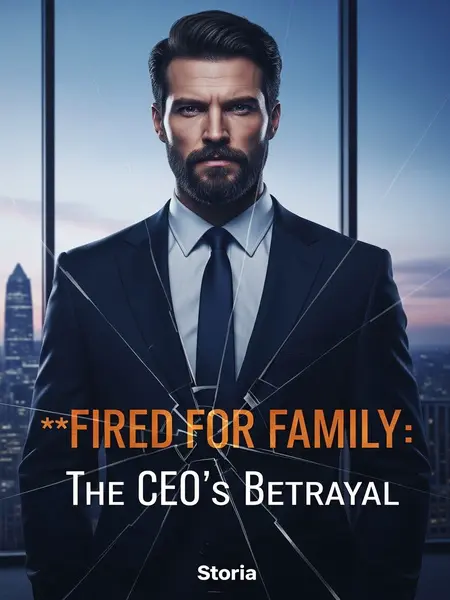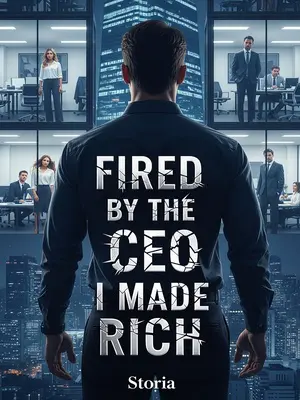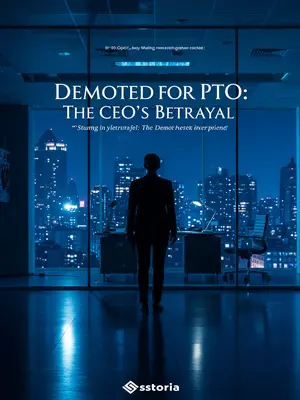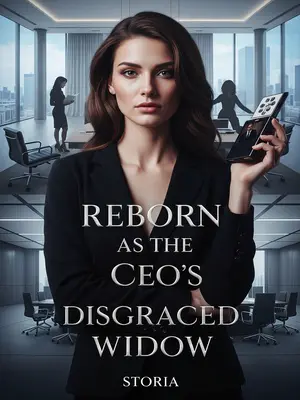Chapter 2: Savannah Promises
I’ve known Bill Jensen for seven or eight years. Back when I was running a service project for a vendor, he was the big man at a mid-sized outfit in Toledo.
Bill was a regular at the Rotary Club, the kind of guy who’d slap your back hard when he laughed. We’d run into each other at business mixers, golf tournaments, and those endless trade shows in Columbus. He always seemed a little too eager to impress, but you get used to that in this game.
He always admired my business chops and tried more than once to poach me for his company.
Every year or so, he’d call—sometimes late at night—just to float another offer. He’d joke that one day, he’d make me an offer I couldn’t refuse. I’d laugh it off, always assuming there was a catch.
But I knew his company was a family business at heart, so I always turned him down.
His office walls were packed with photos: his dad shaking hands with mayors, nephews at graduation, every Jensen family event under the sun. At holiday parties, it was obvious—family always came first—everyone else was just filling a seat. No matter how friendly Bill got, I knew where the real loyalty lay.
At the end of last year, Bill invited me out for a steak dinner. Over drinks, he told me the group had been stuck for years, mostly because his health had been shaky.
We hit Oglethorpe Chophouse—old-school Savannah, with steaks the size of license plates and waiters who called you “sir” no matter what. Bill nursed his bourbon, looking worn. He talked about his heart trouble, the stress, and how he was finally ready to make a big play before it was too late.
But this year, he wanted to make a big move. He’d landed a new project in Savannah and insisted that I come help him.
He pitched Savannah like the promised land—sunshine, booming industry, untapped market. He leaned in, said this was the one, the project that’d put his group on the national stage. And he wanted me front and center.
He swore to guarantee me at least $150,000 a year, plus 10% of the project company’s profits. He even promised the group would go public within three years.
It was heady stuff. Sitting across from him in the low light, I could almost see it: the title, the money, the freedom. He painted it so vivid I nearly forgot my reservations.
As a senior exec, I’d get the same number of stock options as the other division heads—no buy-in required, and I could cash out after the IPO.
Bill even sketched out the stock plan on a napkin—he had it all mapped out. I’d seen these deals before, but he was persuasive. For a minute, I let myself believe.
At the time, I let myself be convinced. I figured I’d wind up on the client side sooner or later, so I agreed.
Maybe it was the bourbon or the itch for something new, but I shook his hand and jumped in. Part of me craved the challenge, part wanted the check. Most of me wanted to prove I could build something real.
After Christmas, I joined the group and moved to Savannah, throwing myself into building the new project company.
I packed up my life, rented a spot near Forsyth Park, and tried not to look back. Savannah was a world apart—Spanish moss hung from every oak, and the air smelled like brine and barbecue. Locals talked SEC football like it was religion. It was daunting, but it felt like a fresh start.
Honestly, this kind of pioneering challenge was really appealing to me.
There’s something thrilling about a blank slate—a little scary, a lot exciting. Building a company from the ground up was pure adrenaline. I’d always thrived in chaos, anyway.
With only a finance guy and an assistant, in a completely unfamiliar city, we started from scratch.
It was just me, Mike, and Erica—the youngest, but sharp as a tack. Our tiny office above a bait shop smelled like old coffee and copier toner. We put in twelve-hour days, hustling from sunrise till the city lights flickered on. Some nights we ate takeout at our desks, running on hope and bad coffee.
As soon as I arrived, I visited all the relevant local offices to build connections, grabbed drinks with partners and city officials for a whole week, and personally handled recruitment—interviewing over a hundred people.
I got to know Savannah by its dive bars and diner counters. If there was a handshake to be made, I made it. I learned which city official liked sweet tea and who drank their bourbon neat. Recruitment was a marathon—each candidate had a story. I made notes on the backs of receipts, determined to remember the good ones.
Within a month, all the project company’s permits were secured.
There’s a certain pride in getting things done fast in a new town. I’d become a regular at city hall, swapping jokes with the front desk lady. I knew the codes officer by name—even remembered his kid’s birthday. It paid off.
In a month and a half, the full staff was in place and the company was established.
We held our first team meeting in a borrowed conference room, everyone buzzing with excitement. I brought donuts from a local bakery—figured it’d break the ice. The logo was still taped to the wall, but we were official.
In three months, the project was up and running.
There’s no better feeling than seeing the gears finally mesh. The lights came on, the phones rang, deals closed. The city buzzed about our launch. My family visited that weekend; we strolled River Street and, for the first time in ages, I felt proud.
In seven months, the project company’s cash flow turned positive.
That milestone felt unreal. I brought cupcakes for the staff—my wife’s idea, and a hit. For a moment, everything was falling into place, just like Bill promised.
At the group’s Q4 operations meeting, the economy was rough and every other project was struggling to break even. Only my new project was making money—it became the group’s most profitable company of the year.
I stood a little taller at that meeting. The CFO rattled off numbers, and every eye in the room was on me. It was a rare, shining moment—the kind you grind years for.
After the meeting, Bill clapped my shoulder and told me to keep it up. Once things stabilized, he’d give me a long holiday at year-end to spend with my family.
He made it sound generous, like he was handing out keys to the city. For a moment, I forgot how quickly praise fades. The promise of a family holiday made me beam like a kid on Christmas.
Back then, I was still naïve enough to thank him, saying the project was on track and I could finally relax.
Looking back, I cringe at how grateful I sounded. In his world, loyalty had an expiration date. But at that moment, I felt like I’d finally earned my keep.
When I got back to the project, I treated my core team to a big meal at a local grill to celebrate.
It was a hole-in-the-wall spot, famous for ribs and cold beer. We laughed, swapped stories, toasted the year ahead. Even the waitstaff joined in when they heard we’d just hit a company milestone.
I told them the group had high hopes for us, and that I’d fight for a bigger year-end bonus for everyone—so we could all push hard again next year.
I wanted to give them something real to believe in. I promised we’d share in the success—no empty words, just hope. That night, I saw true loyalty shining in their eyes.
Of course, I had my own motives. According to Bill’s promise, my year-end package should be at least $75,000.
I did the back-of-the-napkin math more than once. It wasn’t greed—it was the promise my work would finally pay off. I could already see the check clearing and booking a real family vacation.
In these tough times, that’s a pretty good income.
With the world tightening its belt, $75,000 meant breathing room. I started making lists—what we’d do, where we’d go, all the things I’d put off for years.
With less than two months to New Year’s, I was already planning a family trip. About two weeks later, HR called and asked me to come back to headquarters to handle some matters.
The timing felt odd, but I chalked it up to holiday paperwork. I figured I’d pop back, sign some forms, and take a break with my wife and kids. We’d been eyeing a trip to the Smokies or maybe the Keys.
I was puzzled, but didn’t think much of it. It happened to coincide with my family leave, so I planned to go back and rest for a few days.
We’d already packed half our bags. My daughter made a list of must-see stops—she wanted to try every kind of pie in Georgia. My wife teased me about finally taking it easy. The mood was light, hopeful.
When I got to the group, colleagues still greeted me politely, but their smiles seemed forced, and their looks carried hidden meaning.
There was a weird tension in the air—people glanced away a little too quickly. The usual office chatter felt hollow. I tried to ignore it, but something was definitely off.
HR’s Megan Sun asked me to wait in the meeting room. I sat for a long time before she finally came in with some documents.
The clock ticked so loud, I could barely think. Megan finally arrived, folder in hand, her face unreadable. I could tell this wasn’t a simple check-in.
She closed the door. I joked, “What’s so serious? You’re scaring me.”
I tried to break the ice, but Megan just looked down, fiddling with the papers. The tension was thick enough to cut with a knife.
She didn’t respond, just sat across from me, avoiding my eyes.
The silence grew heavier. For a moment, all I could hear was the hum of the old HVAC system kicking on. My palms started to sweat.
“Mr. Turner, I’m sorry. As you know, the economic environment is tough this year, and the group is stretched thin. We have to reduce staff and improve efficiency.”
“As a senior executive and a backbone of the group, you’re expected to lead by example, so you’re on the layoff list. Please cooperate with me to complete the paperwork.”
The words barely registered at first. Layoff? Me? After everything? I stared at her, waiting for the punchline. It never came.













